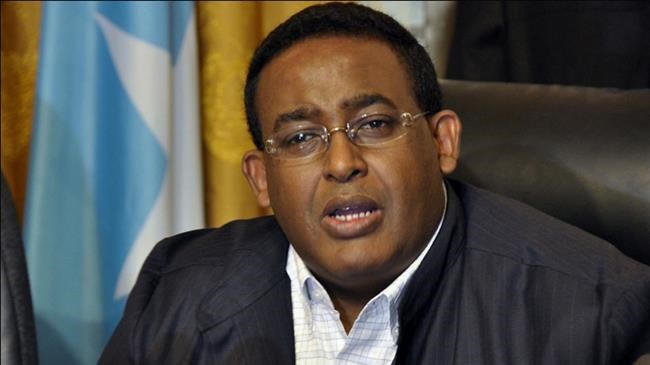
Tuesday November 10, 2015

UNITED NATIONS: Somalia's prime minister urged an end to the conflict in Yemen on Monday, calling it "crucial" to prevent al-Shabab rebels from exploiting their recent allegiance with the Islamic State extremist group and threatening Somalia and the region again.
Omar Sharmarke told a ministerial meeting of the UN security council that its support is needed more than ever before "to stand with Somalia against this terror network."
Sharmarke said resolving the crisis in Yemen - just across the Gulf of Aden from Somalia - "will go a long way" in keeping al-Shabab from getting support from the Islamic State group and using Yemen "as a conduit or launching pad."
He said modernizing Somalia's armed forces is another "anchor" to fight the "terror network." He criticized the lack of donor support for equipment, training and logistics.
Sharmarke said Somalia also welcomes and encourages international efforts to take out al-Shabab's top leadership.
Somalia has been trying to rebuild after establishing its first functioning central government since 1991, when warlords overthrew a longtime dictator only to turn on one another, plunging the impoverished nation into chaos. Al-Shabab rebels were ousted from the capital, Mogadishu, in 2011 and have been pushed out of other key cities.
Despite these military gains, Sharmarke said al-Shabab's recent attacks against African Union and Somali military targets are "disconcerting, to say the least."
And he said its "complex attacks" on hotels, like one conducted last week in Mogadishu, indicate "that though Somalia and its international partners have won the battles against al-Shabab, they have yet to be demolished."
Government special forces have saved lives in al-Shabab attacks on businesses, but Sharmarke said Somalia's "intelligence and pre-emptive capacities remained quite wanting."
"This must end," he said. "We must focus on action."
With better coordination among contingents in the African Union force known as AMISOM, and between that force and the Somali army, Sharmarke said, "we can again turn the tables against al-Shabab and remove their ability to pose any real threat to civilian or military targets."
The security council unanimously adopted a resolution to step up the UN's logistical support to AMISOM and its joint operations with the Somali army.
Despite the many challenges faced by the army and the government, the UN envoy for Somalia, Nicholas Kay, told the council that l "Somalia is well advanced in its political and security transformation from failed to recovering state."
Britain's Foreign Secretary Philip Hammond, who chaired the council meeting, called 2016 "a critical year in the recovery of Somalia.The international community expects to see credible elections, he said, and the government also has to show it can deliver "a fiscally sound budget" and that its reforms of the army and the security sector "can be effective and can in due course" take over from AMISOM.